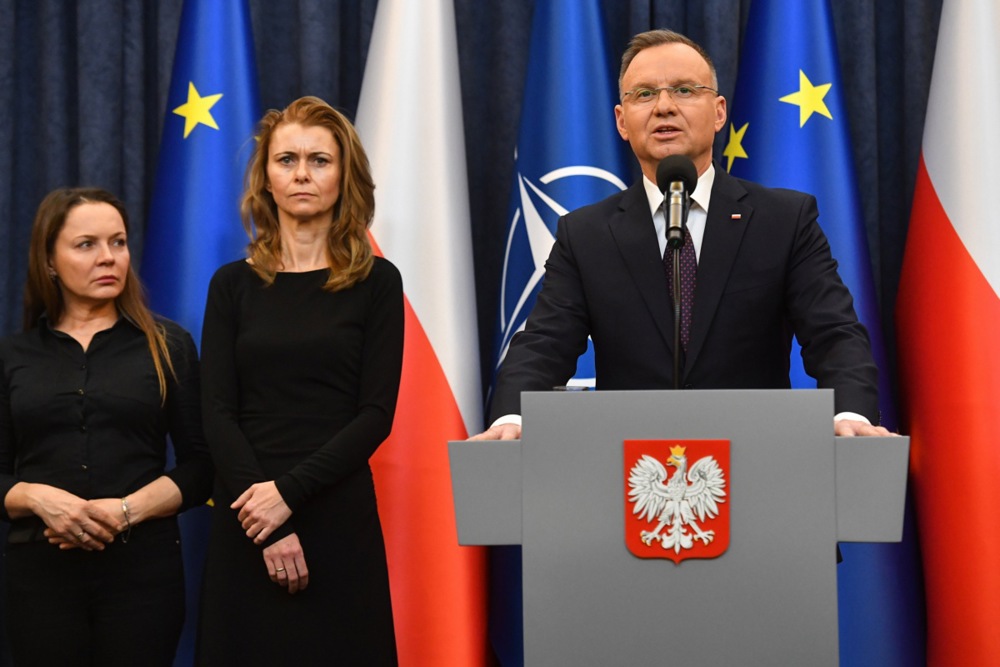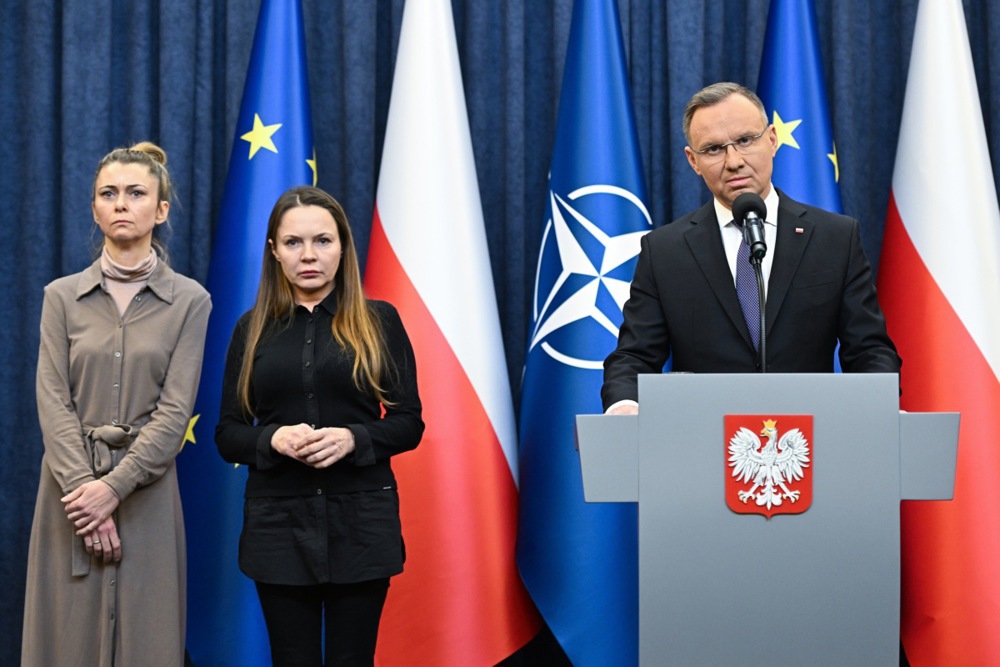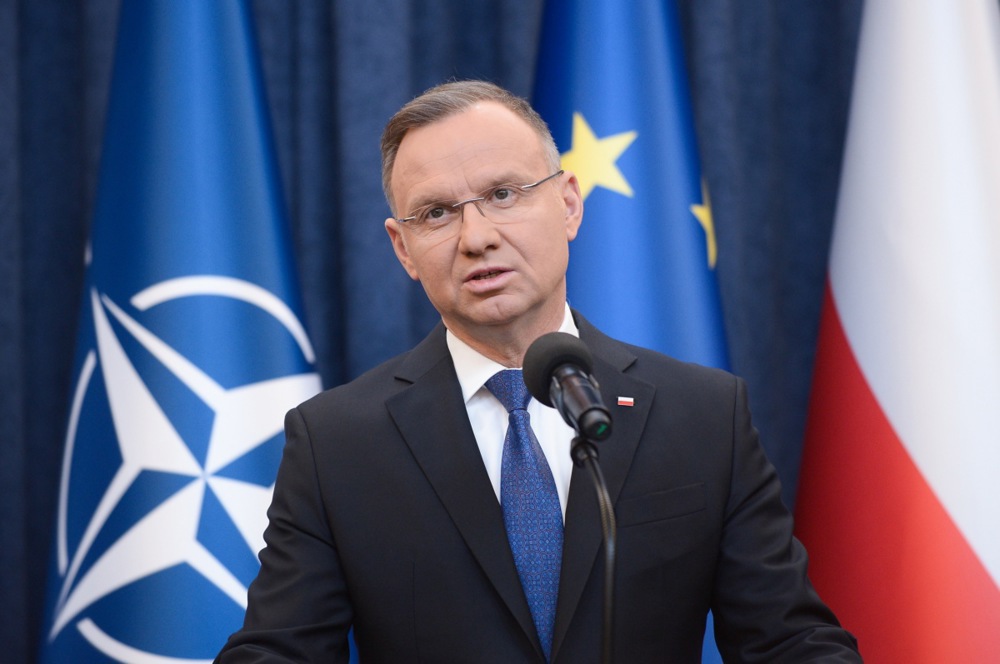Polish President Andrzej Duda approved the State budget – but sent it to the Constitutional Tribunal (TK), or court.
That was to review whether Parliament was “properly constituted” without two MPs who have been barred from holding office and without whom the constitutional number of MPs (460) is being “violated”, it was reported on January 31.
Duda did not have the right to veto the state budget but he could have refused to sign it pending a TK decision on whether Parliament was properly constituted. He has backed off on what would have been seen as a radical course of action.
He did signal that, until the two debarred MPs are returned to their duties, he would send all future legislation to the TK to determine whether Parliament was acting in accordance with the Constitution
The President, who is an ally of the opposition Conservatives (PiS), has already clashed with the new Liberal Government led by Prime Minister Donald Tusk over its takeover of public media and the national prosecution service, accusing Tusk of bypassing his prerogatives on both matters.
The most dramatic clash has been over the status of Mariusz Kamiński and Maciej Wąsik, who are PiS MPs and were ministers in the previous Conservative government. Both were recently jailed for alleged abuse of power despite a presidential pardon having been issued for their actions back in 2015.
The ruling majority’s Speaker Szymon Hołownia annulled Kamiński’s and Wąsik’s mandates, acting on a court judgment that upheld an original guilty verdict from 2015 against the two politicians.
Duda and the TK both dispute that interpretation, pointing to the Constitution giving the President the right to issue pardons without any limitations and, therefore, arguing that the two politicians continue to be MPs in the eyes of the Constitution.
Following their incarceration, Duda reluctantly issued a second pardon – waiving the sentence pronounced by the appeal court. That ensured the two men, who had been seized by police in January, were freed.
The President pointed to rulings by the TK and some elements of the Supreme court as support for his view that the two are still MPs and should be allowed to sit in Parliament.
Tusk’s ruling majority argues that, under Polish law, if an MP is sentenced via the penal code he or she automatically forfeits their seat. It considers both the TK and one of the chambers of the Supreme Court as being “illegitimately constituted”.
The Prime Minister, who had threatened he would move for dissolution of Parliament if the President decided to block the budget, welcomed the Head of State’s decision to sign the budget. He dismissed Duda’s views on the two MPs as being of “no consequence”.
Tusk MP Jan Grabiec on February 1 seemed to taunt the President by calling the two pardoned PiS politicians “criminals”. He asked if Duda believed that “voting buttons should be installed in prison cells”, despite the fact that both men have been released from jail.
The President’s office hit back saying that legislation would be sent to the TK “each time MPs are prevented from exercising their mandate”, which would lead to ruling-majority politicians having to think about early parliamentary elections.
Any move for fresh elections needs a majority of two-thirds of Parliament, implying an agreement between the ruling majority and the opposition for dissolution. That is possible given the PiS leader Jarosław Kaczyński has said his party was prepared to back such a move.
Poland is already facing a set of all-out local government elections in April, a European parliamentary poll in June and a presidential election next spring. The new Government has found creative ways of bypassing the President, the law and the Constitution as evidenced by its takeover of public media and the national prosecution service, many say.
Tusk is unlikely to move for early elections until he feels confident his coalition could cement at least a “super majority” of three-fifths of Parliament to overturn any presidential veto.
In addition, it is likely he would also need to be confident his allies were well aware of the power struggle with the President and that the state of the nation’s courts cannot wait another 18 months – Duda’s term of office expires in August 2025 – for resolution.





